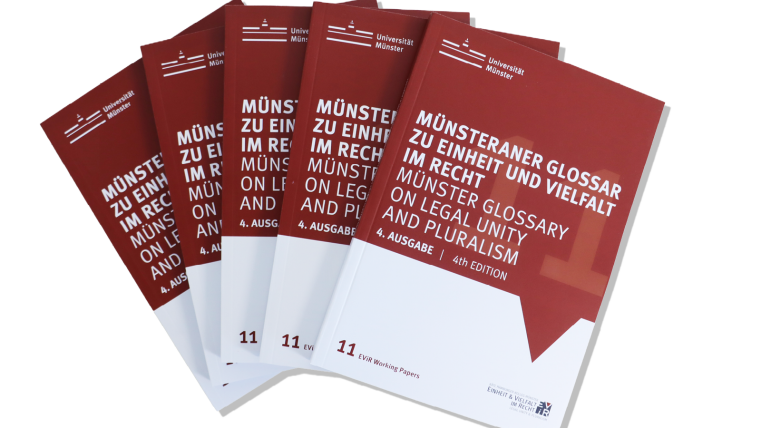
Münster Glossary on Legal Unity and Pluralism
For several years, phenomena of legal unity and pluralism have been intensively researched from the perspectives of various disciplines and in different periods of time. A mutual understanding of central terms and concepts is key to a productive exchange between the different research communities. The Münster Glossary on Legal Unity and Pluralism brings together articles from different disciplinary and epochal perspectives. It aims to facilitate interdisciplinary research by providing a brief introduction into different approaches of the disciplines involved.
The Glossary will be successively expanded and is published twice a year as part of the EViR Working Papers (ISSN: 2749-8166 (print), 2749-8174 (online)) freely accessible in open access. Each issue comes with a citable URN and DOI. It is planned to publish the entire glossary in print at a later date.
Click here for the latest edition of the Münster Glossary on Legal Unity and Pluralism
Editor
Ulrike Ludwig
Nora Markard
Peter Oestmann
Benjamin Seebröker
Editorial Office
Benjamin Seebröker
For contributors:
Guidelines Münster Glossary
If you have any questions or are interested in contributing, please contact Dr Benjamin Seebröker, benjamin.seebroeker@uni-muenster.de.


